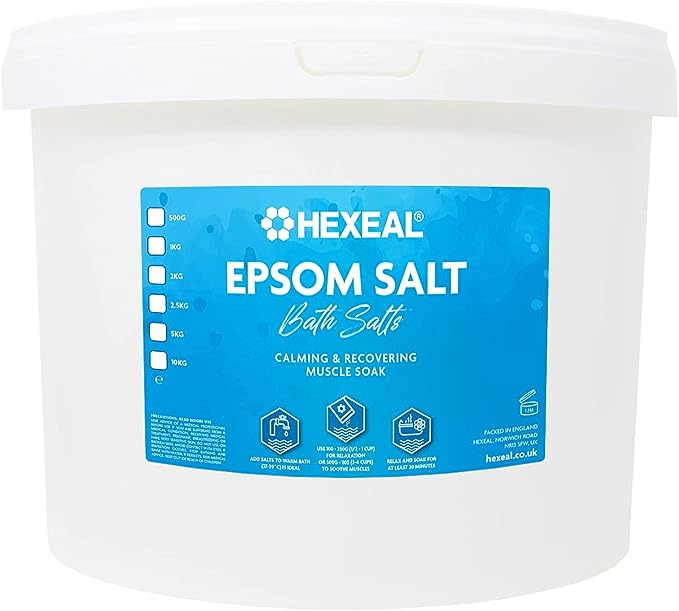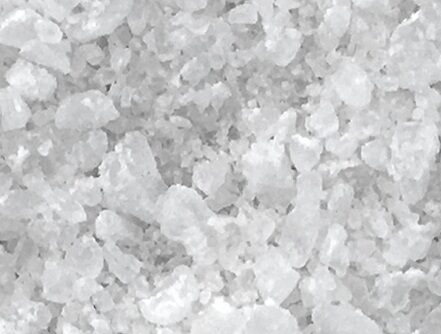With the growing popularity of ice baths and wellness, a question commonly asked is can you put Epsom salt in an ice bath? Epsom salts are commonly used in hot baths but it may be unclear whether they can be used for their same benefits in ice baths.
This article will look into Epsom salts and their benefits, whether you can put Epsom salt in an ice bath, and considerations when doing so.
What is Epsom salt?
Epsom salt, also known as magnesium sulfate is a chemical compound typically used to improve mental or physical problems. This compound has been used for many years to treat electrolyte imbalances, muscle soreness, and stress.
Epsom salts are inexpensive to buy and simple to use, so they are a popular option for people who are looking to improve their health. Generally, Epsom salts are dissolved in water and the idea is that the magnesium sulfate is absorbed by your skin.
Can you put Epsom salt in an ice bath?
Yes – many people do use Epsom salt in their ice bath and there are many reasons to do so. Magnesium is critical for cold thermogenesis, the more exposure to cold, the more magnesium you need. Which makes Epsom salt a perfect and important supplement for regular ice baths.
The mentioned benefits of magnesium can be experienced and potentially amplified by mixing Epsom salts in your ice bath. There are however a few considerations. Magnesium in stainless steel tubs could cause the growth of green algae which would require more filtration to keep the water quality high. The next consideration is that Epsom salt can decrease the freezing point, meaning you could reach dangerously low temperatures. But this is likely to only be a problem in very cold places and with excessive ice.
Epsom Salt Benefits
Many claim Epsom salts provide an effective way to treat multiple ailments and reduce stress. Here is a list of the benefits and uses of Epsom salts.
Magnesium
Many people are deficient in magnesium despite it having an important role in many of our bodies’ functions, such as muscle and nerve function and energy production. Chronically low levels of magnesium can lead to high blood pressure, heart disease, and diabetes.
Some people believe we can absorb magnesium more effectively through our skin versus an oral supplement. However, more conclusive evidence is required to back up this claim.
Physical recovery
A common benefit of the use of Epsom salts is the reduction of muscle soreness. This makes Epsom salts a great tool for recovery if you are someone who wants to train at an optimum level regularly. Or if you are someone who suffers from tight muscles.
Research shows that athletes are prone to magnesium deficiencies due to magnesium being lost through sweat, and magnesium playing a key role in energy production.
There is limited evidence to suggest we can absorb magnesium through our skin in a bath, but it is worth experimenting yourself to see if you benefit.
Reduces stress
Magnesium is an effective mineral for stress management because of its ability to help our brain produce the neurotransmitters required to improve our sleep quality and resilience to stress. Magnesium has also been known to be an effective way to improve digestion which will impact our stress levels.
Whether it’s freezing cold or a nice hot bath with Epsom salts, both have been known to reduce stress and induce relaxation.
I’ve used the below Epsom salts for many years in hot baths and ice baths and have found them to be beneficial and of great value. Especially for muscle soreness and stress relief.




Leave a Reply